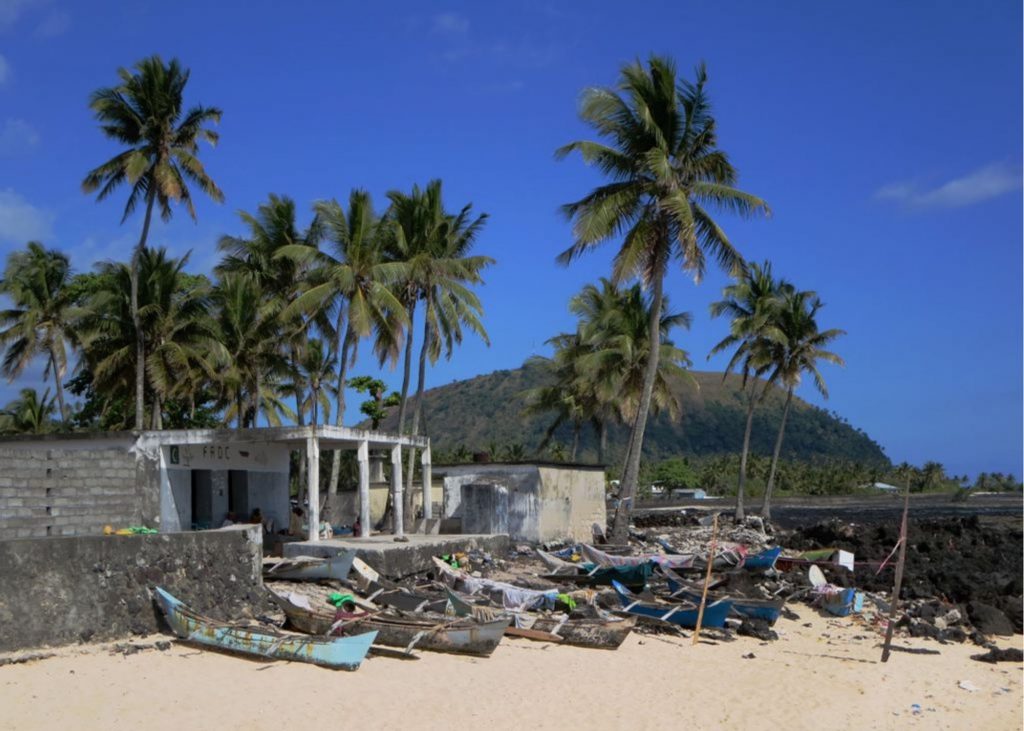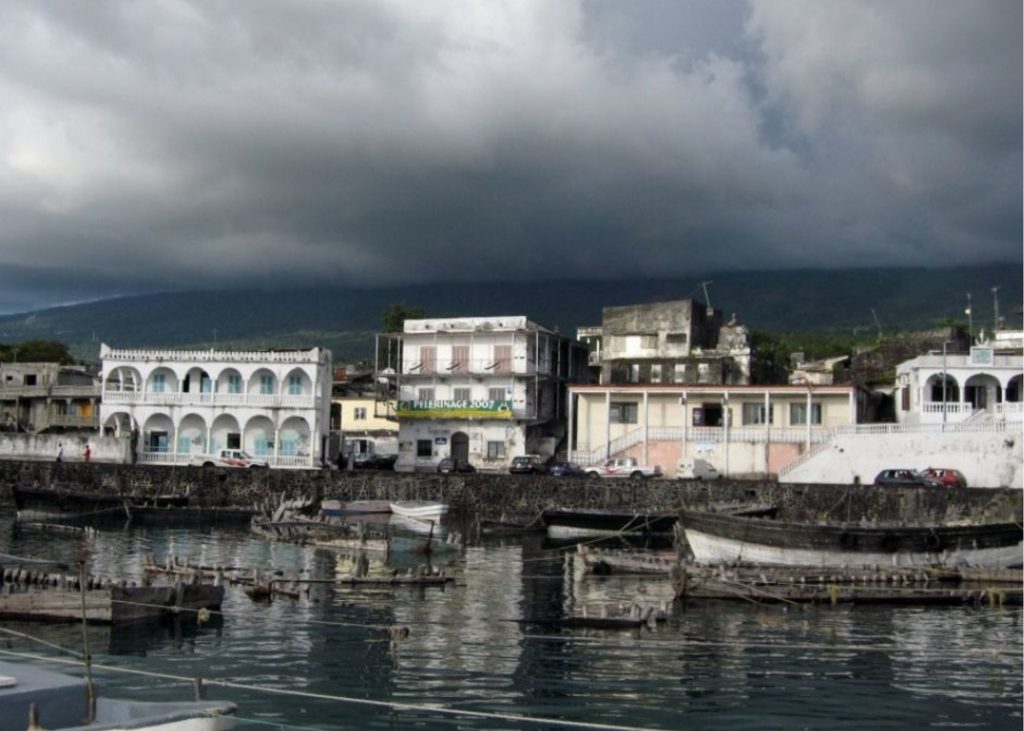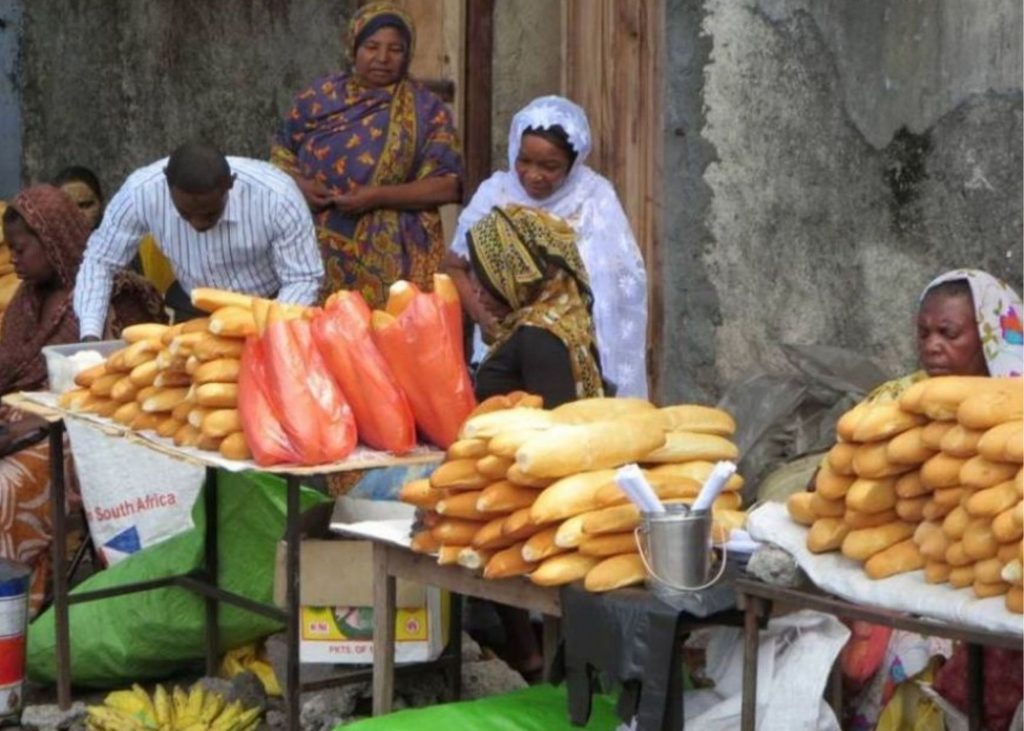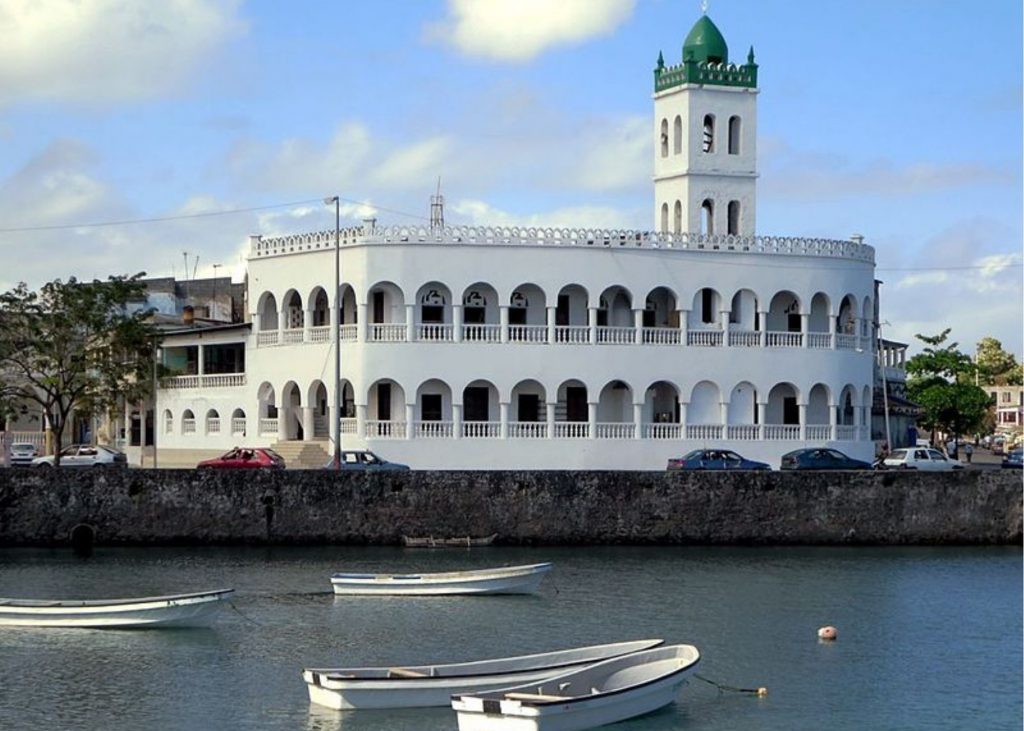Driving around the Comoros
A lone bird of prey glided over swooping hills of ylang ylang and coconut trees on the black volcanic island off the coast of Mozambique. Rows of palm leaves swayed in dance when startled by a breeze. A wave of rustled trees flowed down the hillside toward the ocean where a shoreline of volcanic rock fringed the road that wound around the island of Grande Comore.

White foam sprayed high as the surf pounded against black rocks. In the distance, the deep blue of the ocean was wrinkled by waves, and farther away, beyond the horizon, lay the bulging continent of Africa.
Boris was speeding his Peugeot like a race-car driver along the winding coastal road and I was sitting shotgun. Boris was a tall Corsican with a full square jaw, a large Roman nose, dark hair and broad shoulders that resembled football pads. He wore a red Lacoste shirt buttoned to the top, faded Levi’s jeans and steel-toe Doc Martens. He had been in the Comoros for many years, knew the island well, had many Comoran friends and was an insider on the Comoran scene.
As we raced along the narrow, winding roads of the coast, his stereo blared a punk song. We sped past construction sites of unfinished homes dotting the black landscape. These eerie monuments to a Comoran custom, which obligates a father to build a home for each daughter at a pace he can afford, stood like dismal ruins of an ancient civilization.
As we approached the capital, Moroni, Boris slowed down for a car in front of us.

“You know this was a slave hunting ground for pirates,” he said turning to me. “Their raids sure fucked up this place.”
Clan warfare in Madagascar, he told me, initially supplied enough slaves for French sugar plantations in the Seychelles, but as the population of Madagascar diminished, large flotillas of pirates came on slave raids to the Comoran coast.
Along the coastline seabirds swarmed over garbage scattered among the crags of volcanic rock and dead flying squirrels hung upside down on naked electrical wires. We drove into Moroni, a fishing village capital at the foot of a volcanic mountain.
We drove past a market place with a high entrance wall that resembled a giant keyhole, with Arabic scroll above it. Women of African and Arab descent, some wearing large shawls that covered their heads and draped gracefully over their shoulders, some with red hibiscus flowers tucked in their frizzy hair, sat in front of a grey wall selling baguettes.

Women carrying baskets on their heads strolled past mounds of red chilies, green bananas, onions and yams displayed on plastic rice bags on the ground or on raised wooden platforms.
A young man wearing an embroidered kofi hazi on his head wandered among the women. In the town center, the main intersection was surrounded by white stone dwellings, a grocery store and a bank. We paused at a stop sign. No cars were on the road, so we continued. As we passed one of the stone dwellings, a woman sheltered behind a veil of black cloth peered through a wooden window whose carved lattice threw its intricate reflection in patterned silhouettes across her forehead. A man with a ragged shirt rode his tired donkey along the side of the road, stirring up a haze of red dust that lingered in the air.
The imposing Friday mosque loomed before us with its colonnades and minaret, stark white against the blue sky and ocean.

Inside the mosque, dressed in long white kantzous and facing Mecca, the faithful were bowed in prayer. The whitewashed stone buildings surrounding the mosque and the sun-bleached wooden fishing boats along the shoreline seemed to belong to another era—a time of dusty roads, sleepy donkeys and prophets.
It was a hot, sunny day, so Boris and I decided to go windsurfing. We sat in the pale shade of a coconut tree in the Café Kartha, looking out at the flat calm of the ocean, waiting for the wind to pick up. Boris took a drag of his Gauloise, his fingers stained yellow from nicotine. I looked across the beach to where the windsurfers were stacked on racks.
We left the cafe and walked along the beach, following the smell of cooking food wafting through the air, to a roadside stand where brochettes seasoned with curry and grains of sand sizzled over a fire. The vendor offered us two small wooden stools and we sat and watched him turning our kebabs. Music by Rayvanny wafted out to us from his sand-scarred radio.